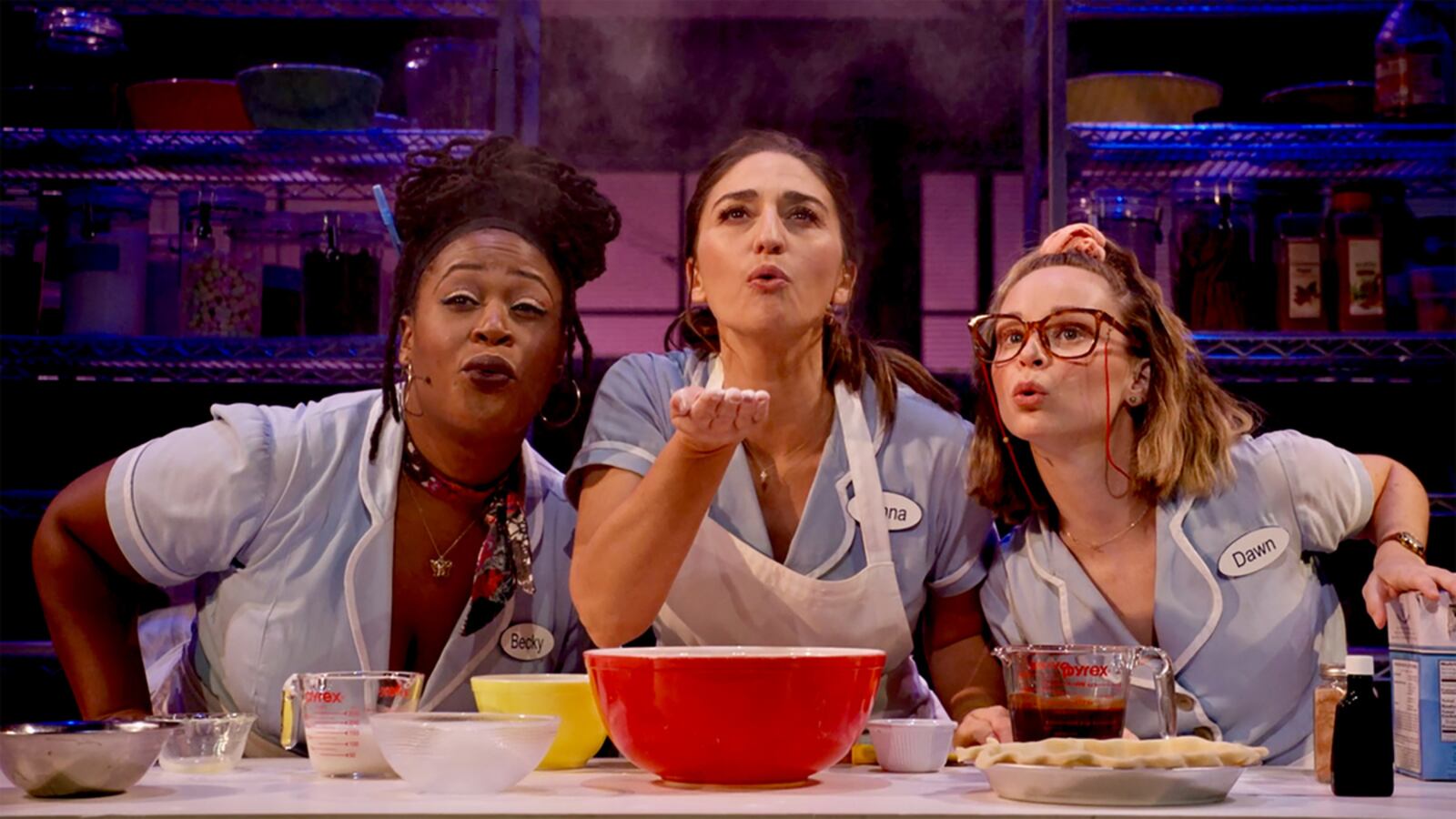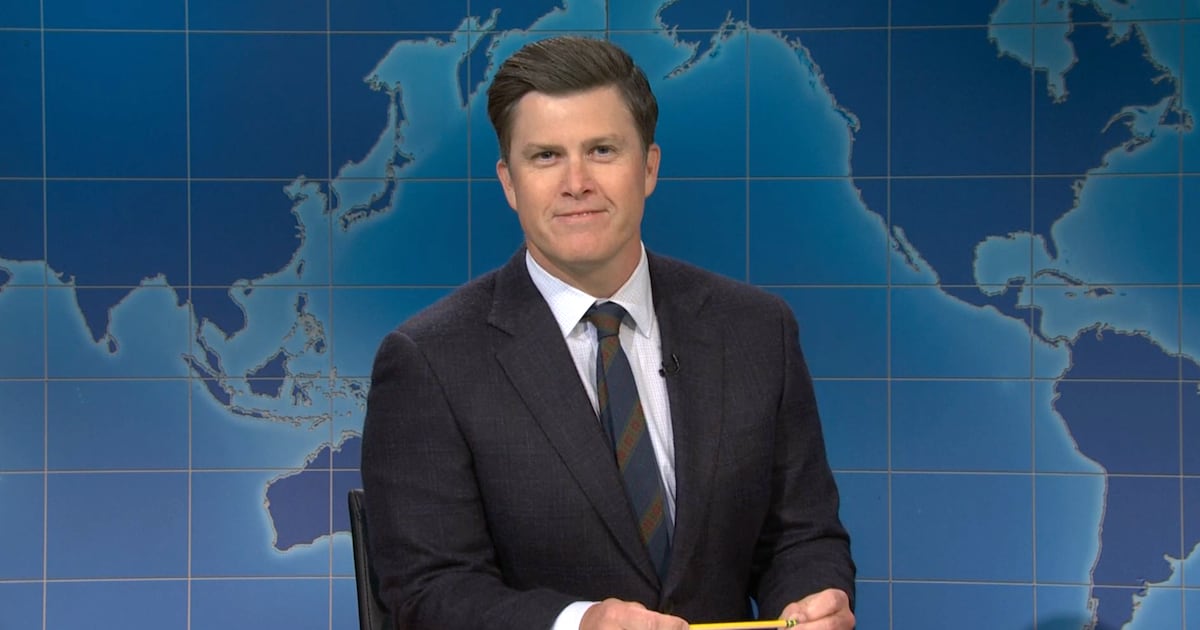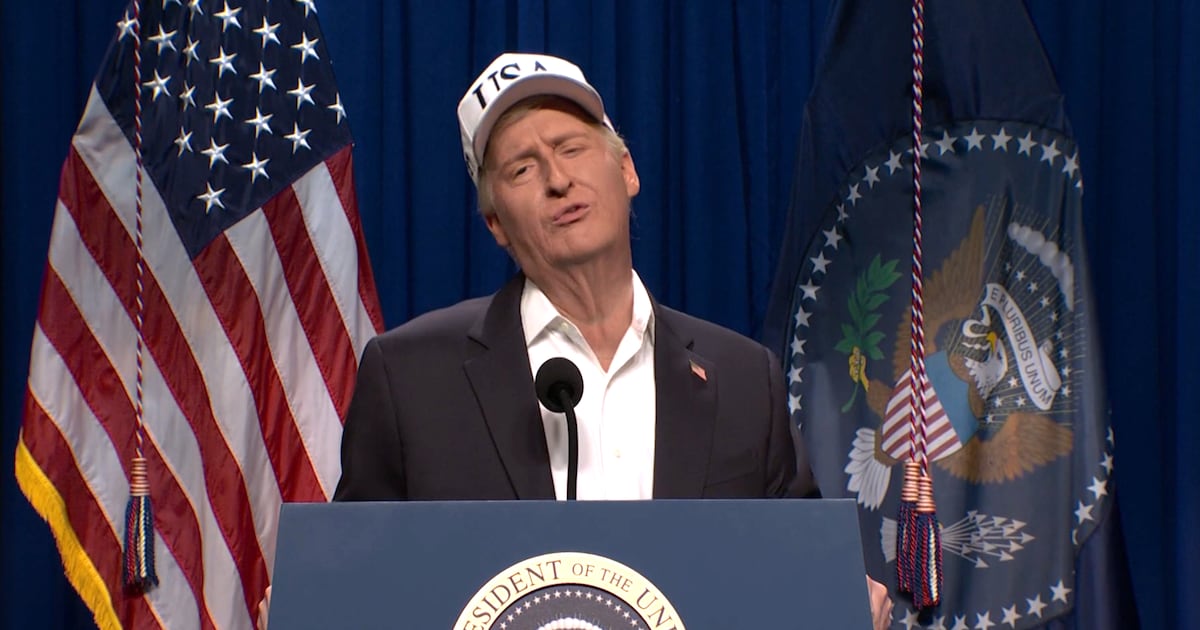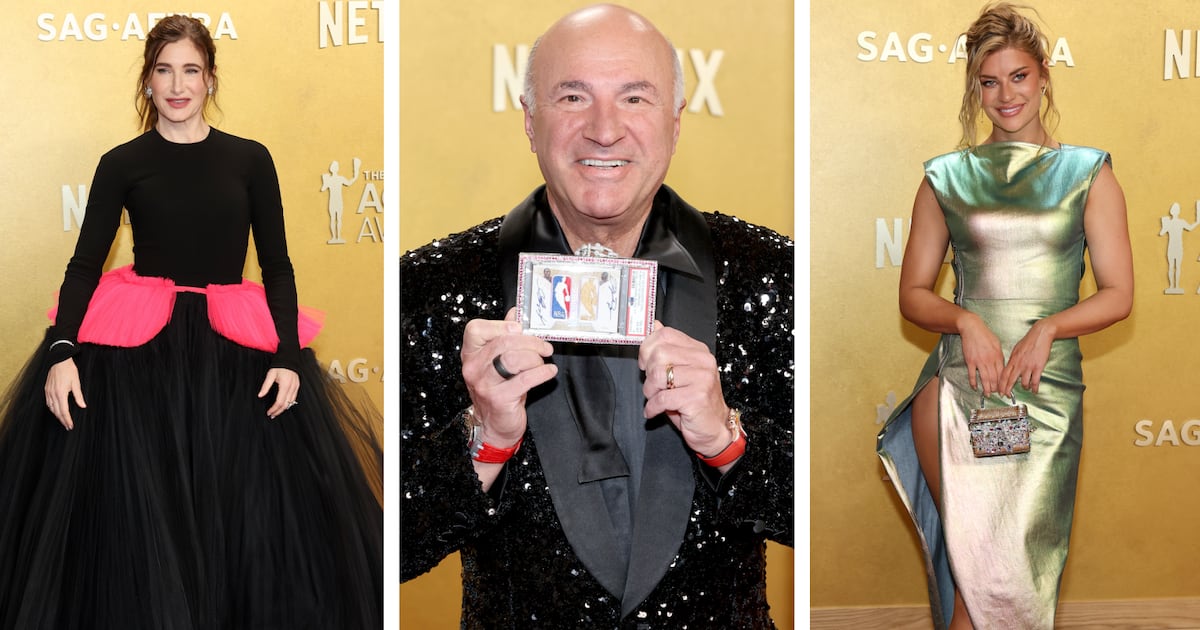Musical theater, in several respects, is one of the less-accessible forms of mainstream entertainment. There’s the oft-prohibitive cost of a ticket, let alone one that gets you a good view of the stage. Shows can be long in length, rigid in schedule, and brief in run; and only so many places are equipped to house the most expensive, attractive productions. Plus, the medium is commonly referred to as “Broadway” for a reason—access to the Big Apple is not required, but it might as well be.
Watching movies, conversely, is a treat for any Average Jo(e). Which is why the filmed theatrical show is a particularly good use of the medium. There’s no longer a need to book a weeknight trip out to NYC’s dirty belly button to see a couple Founding Fathers rap, when we Disney+ subscribers can veg out at home. Soon, we’ll be doing the same for Sara Bareilles’ Waitress, whose stage-to-film adaptation premiered at this year’s Tribeca Film Festival.
Still, something feels wrong to me about going the other way: bring a movie to the stage and back again. I’m well aware that adapting a non-musical film for Broadway and adding some songs where there weren't any before is nothing novel. Still, I find it depressing at best and ungodly at worst. (Broadway gets away with staging a song-and-dance take on Heathers, but we’d all rage if Hollywood tried to make The Music Man with zero music!) To rip the cinematic out of cinema for a live show, then try to bring cinema back into the equation is the definition of anathema to me.
Hence my heavy skepticism of Waitress: The Musical: The Movie, as I like to call it. (The actual, official title: Waitress, the Musical — Live on Broadway.) While the award-winning Broadway show received strong reviews during its initial 2016 run, my wallet told me that the cost of sitting in the worst seat in the house was equal to that of renting 2007’s Waitress: The Movie at least 12 times. I can’t say I did that, but I did watch it once, and I liked it, and I felt satisfied with my choice—this simple, music-free rom com seemed perfectly fine as-is.
Yet I am nothing if not a purveyor of the arts, and as mystified as I remain by the idea of translating non-musical work made for screen into musical work made for stage, I welcomed the chance to prove my theory that there’s something perverse about retranslating the translation. I find it telling that, while Hamilton was nominated for an Emmy, the Roku Channel film of Heathers: The Musical and Nickelodeon’s TV release of the SpongeBob musical came and went—to me, this feels like an increasingly popular business opportunity, more than actual art. The good news is that this recording of Waitress convinced me of its worthiness. Less good is that it also validated my concerns.
Waitress (2016) follows the same plot as Waitress (2007), swapping Keri Russell out for pop artist/actor Sara Bareilles as pie-baking dreamer Jenna Hunterson. (Bareilles played Jenna in a 2021 restaging, during which this film was shot; the role was originated by Jessie Mueller, who received a Tony nomination.) Jenna dreams of being more than a server at the diner, who goes home to her drunk, abusive husband Earl: She wants to leave this town and open a pie shop. Her fellow waitresses, Dawn and Becky, and regular patron/diner owner Joe are her only salvations—until Jenna becomes pregnant, then begins an affair with her married OB/GYN, Dr. Jim Pomatter.
The film elevated its straightforward premise into something melancholically romantic and bleakly funny. Russell perfectly nailed the tonal balance; her exhaustion is palpable, her sharp tongue sanded down. It’s easy to imagine what Jenna would be like had life dealt her a better hand. (It’s also easier to understand why she’d stay with her abuser than it is in the musical, whose Earl is a violent narcissist.)
A musical must be big where a film can be small, and smallness is much of what makes Waitress great. But Bareilles’ and writer Jessie Nelson’s take on the late Adrienne Shelly’s original script broadens the action without shouting the emotion. The actors are all excellent comedians and gifted vocalists; the music is earworm-y and loaded with feeling; and the lyrics are evocative, without being too “tell” instead of “show.”
But you can read all about how good the musical is in prior reviews. Watching the glossy recording certainly made me regret not taking those reviews more seriously, when I had the chance to spend a little extra cash to go see it live. (Waitress closed in January 2020, with a limited engagement running September-December 2021.) That’s not only because this show is so charming, its tunes so fun, its heart so open—it’s also that Waitress: The Musical: The Movie isn’t a particularly good piece of filmmaking.
The front row is visible in many wide shots, including those that hold on the performers after their last note for several moments, as the audience thunderously applauds; this obviously makes sense in-person but reads as uncomfortably long on-screen. Their silhouettes are inconsistent reminders of the artifice unfolding before us, a jarring fourth-wall break. Without ever showing us the audience outright—like live performance films with a strong directorial vision, such as Stop Making Sense—this feels like sloppy cinematography, not an intentional device. The same goes for the increased visibility of the on-screen musicians, who are sometimes well-obscured by the camera placement and sometimes right there in the frame.
While editing out audience reactions to further fortify the distance between us at home and them would be unreasonable, their presence can be distracting. Sometimes, it even unwittingly highlights the weaknesses of both the show and its source material. One moment, in which Jenna shoots down an implied suggestion that she get an abortion, clarifying that she’s fully in support of people doing “that,” is a relic of the late-aughts’ cagey feminism. Here, Jenna’s awkwardly articulated pro-choice stance elicits loud applause. In 2021, this shoehorned, wan political moment read as cowardly; in 2023, it’s shameful. To hear people cheer for it in this film version today is a bum note that careens you back into reality.
The actual attempts at framing this film like a film range from successful to less-so. Close-ups on characters in song help deepen the emotion. Reaction shots during scenes of dialogue help establish the characters’ relationships and add to the humor. The jokes also play even better with the benefit of editing, as it allows the film to separate between the wisecracking wheat from the extraneous-character chaff.
At the same time, the first act suffers when it cuts to footage shot handheld, which makes some scenes come off more as messy filmmaking than intimate character moments. And after Jenna performs her big Act 2 solo, the film cuts to a shot from behind her—the one time we do see the audience's faces, as they give Bareilles a deserved standing ovation that comes off as self-indulgent here.
Waitress: The Musical: The Movie doesn’t replace the need to watch Waitress: The Movie; in fact, it proves why the original film remains so marvelous. There’s nothing inelegant in how the 2007 original constructs its big-hearted story of a quietly suffering woman, who wants a better life for herself and the baby she’s still uncertain about. That Waitress uses cinematic techniques in smart, subtle ways: using lighting and color to convey Jenna’s lightening anguish, while creating mournful laughter out of her stop-motion baking scenes.
But even if the musical’s attempt to give back to the medium that birthed the source material is uneven, it accomplishes its main, important goal: It will help more people see this wonderful piece of musical theater.
Keep obsessing! Sign up for the Daily Beast’s Obsessed newsletter and follow us on Facebook, Twitter, Instagram and TikTok.






